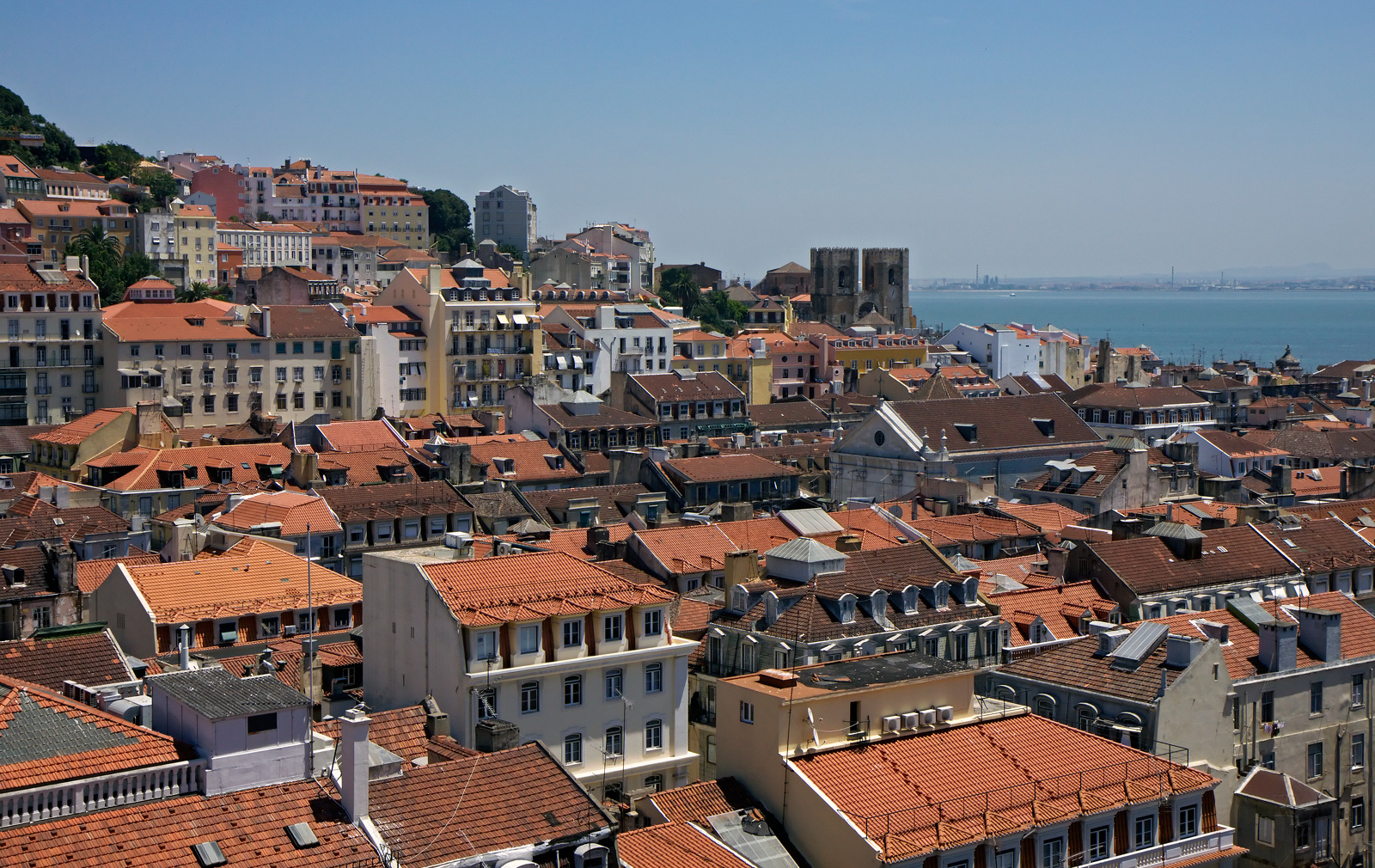
At first glance, Lisbon, with its 270 days of sunshine a year, laid-back Latin approach to timekeeping and a lifestyle based around the sea, doesn’t have much in common with its northern European counterpart. But, thanks to an influx of young creatives attracted by the city’s affordable rents, thriving café and bar culture and an increasingly bohemian lifestyle, many commentators are beginning to brand Lisbon as ‘the new Berlin’.
Lisbon has long been a picturesque and affordable city but it’s only in the last seven years that it’s started to move away from its conservative roots and deliver a more Berlin-style vibe. This change is one of the few positive elements to result from the country’s on-going financial crisis: as job opportunities plummeted after 2008, many of the country’s young graduates found they had no option but to try their own thing.
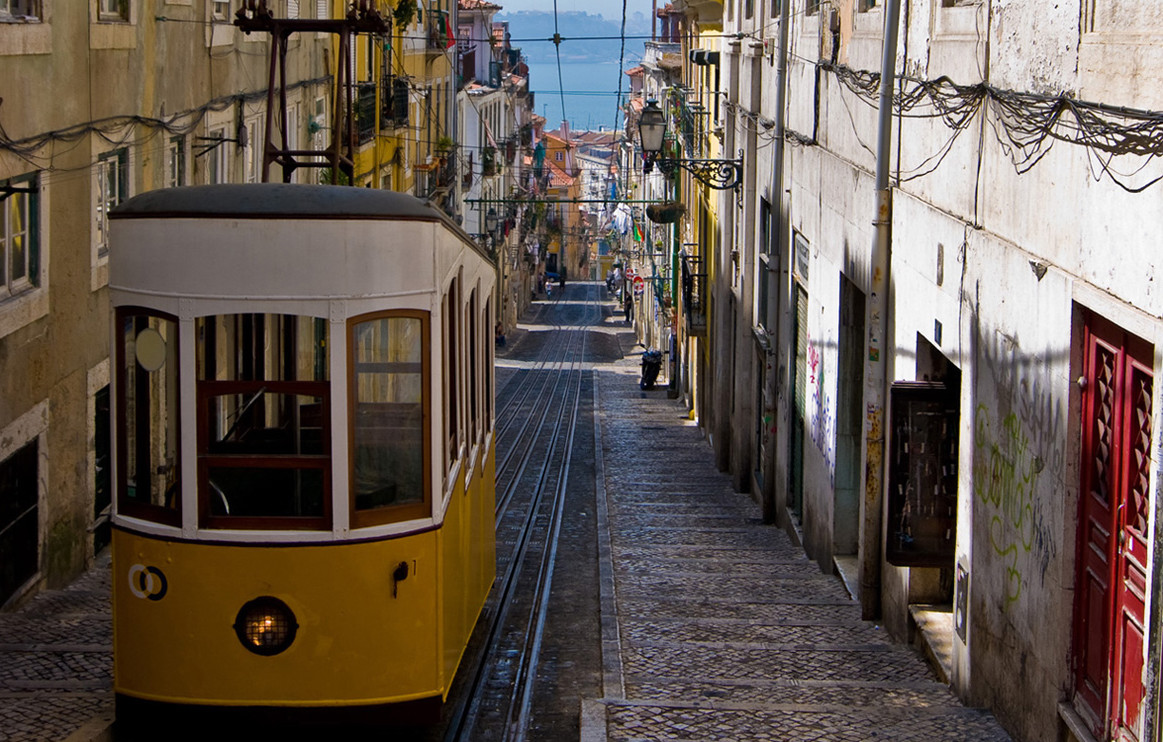
A vibrant entrepreneurial culture has emerged with everything from small design ateliers to new bars, restaurants and shops opening in the city. The Portuguese government has also introduced tax incentives to attract foreign entrepreneurs, and according to Lloyd Hughes, head of communication at London-based property specialists Athena Advisor: ‘The startup scene in the city is explosive.’
‘Especially over the last 12 months, we’ve seen a wave of ambitious young people who are part of the startup scene coming to Lisbon,’ says Hughes.

A Vida Portuguesa is a design-led store that opened in 2007 in the Chiado area of the city. An emporium of old fashioned Portuguese goods, from sardines to Claus Porto soaps, it is curated by its founder, journalist-turned-entrepreneur Catarina Portas.
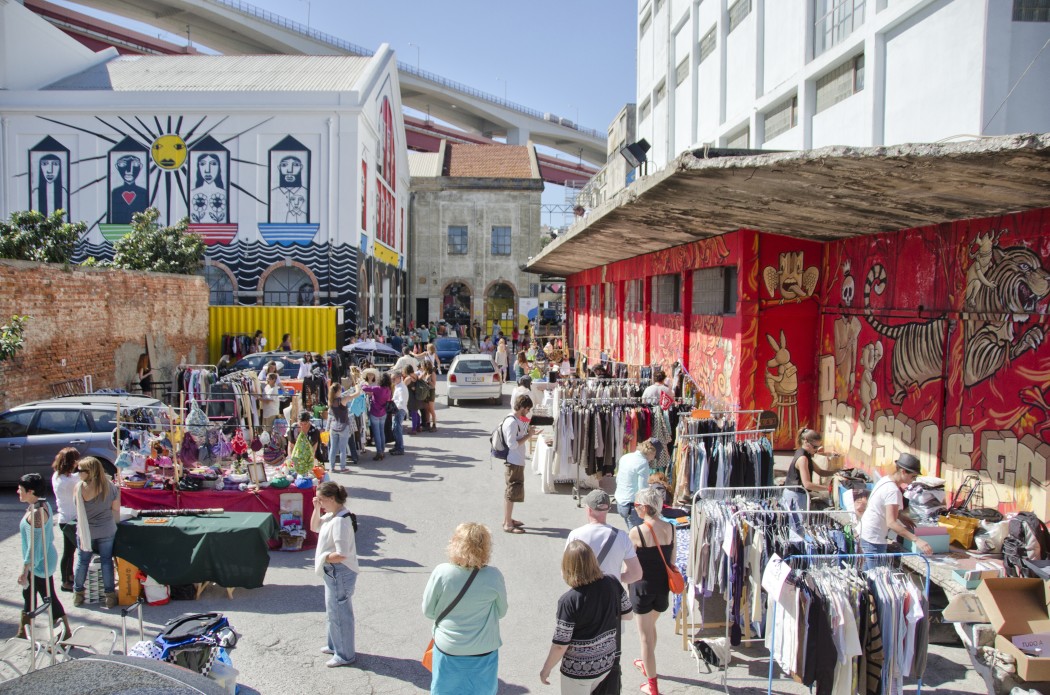
The LX Factory is a 23,000 sq m hub of restaurants, design stores, bars, galleries and co-working space in the Alcântara neighbourhood. Built in 1846 as a manufacturing plant for the textile industry, the area fell into disuse in the 20th century before it was transformed in 2008. Photography:

The industrial buildings have been lightly ‘restored’, and now host a range of independent businesses as well as art installations and exhibitions. Photography: João Morgado
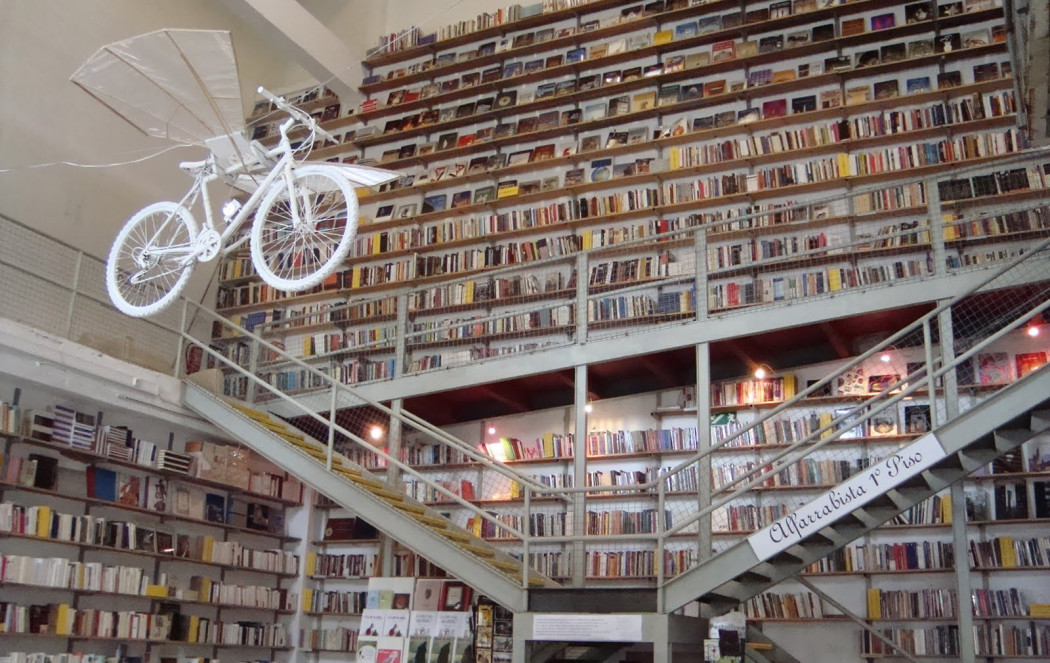
The centrepiece of the LX Factory complex is the Ler Devagar bookstore, which retains the original press from the factory’s days as a printer, and a gallery on the second floor.
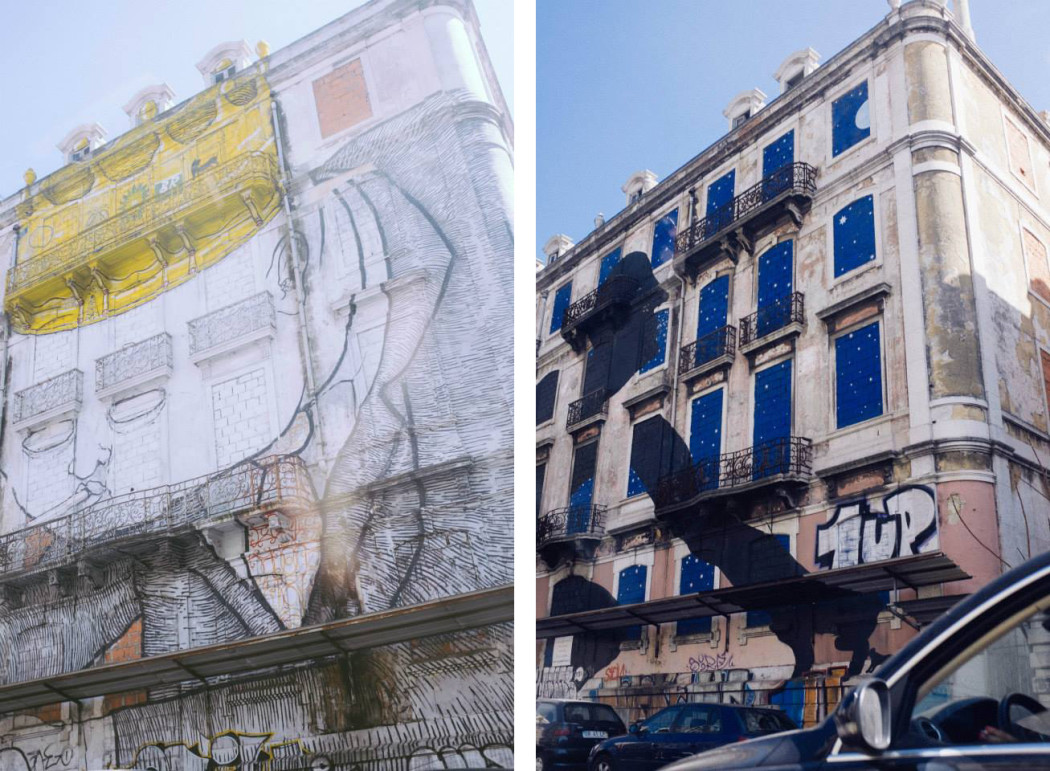
In 2011, there were an estimated 4,600 buildings empty in the central area of Lisbon, 50% of which were abandoned and awaiting either demolition or approval. For the last five years, the council has sanctioned a series of projects allowing them to be used as canvases for graffiti and street artists, while many have been turned into meanwhile creative spaces. Photography: Alice Ralph
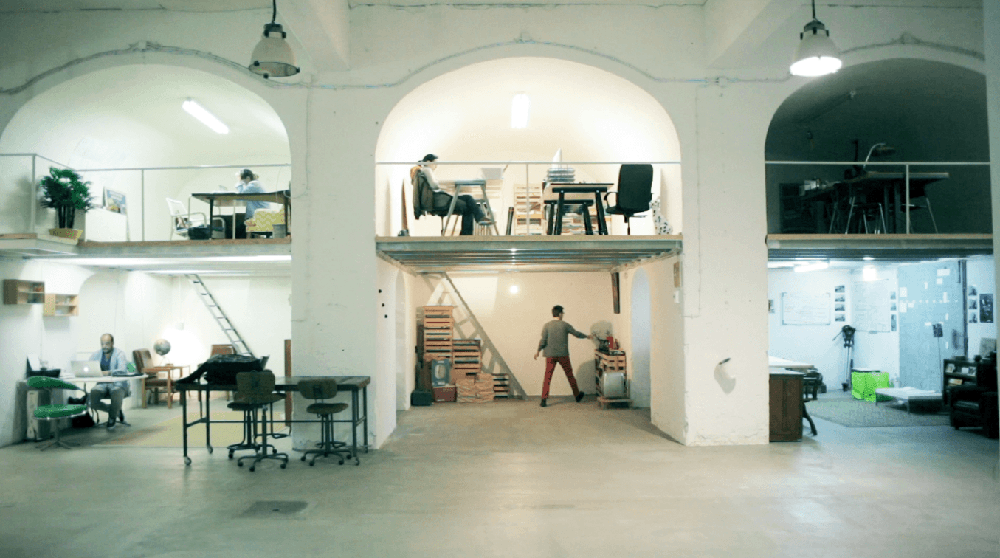
Todos is a creative hub for photographers, fashion designers and media professionals in Braço de Prata that took over a 1600 sq disused warehouse space. While the arches have been converted into double level studio spaces, the centre floor is used a studio for shoots.
Like Berlin, Lisbon’s entrepreneurial spirit has been facilitated by a surplus of empty buildings – some beautiful, others just run down – that are available at low prices. Young creative types tend to cluster in one of three areas.
In the centre of Lisbon, it’s the Santos area and particularly two streets: Rua Poço dos Negros and Rua Boa Vista. A formerly run-down district, Santos been reborn in part thanks to Rés do Chão, a not-for profit organisation that works to revitalise abandoned ground floor spaces. The organisation has leased a number of formerly abandoned stores to young fashion designers, product designers, architects, graphic designers and others.
For those who don’t need a whole atelier, co-working space Oficina Colectiva has recently opened on Poço dos Negros. Designers can take a desk and access a shared retail space for €170/month.

Some 15 minutes further west of the centre is Alcántara. Spread along the river, it was once a dockside suburb but today its empty warehouses are being used by musicians, film makers, advertising agencies and web developers who are reinventing the area, Berlin-style, as a creative hub.
Among the largest is LX Factory, home to studios, bars, restaurants, galleries and stores. A desk in a co-working space here costs from €150/month. Also in Alcántara is Village Underground Lisboa with offices, a bar and a gallery all housed in shipping containers, where a co-working desk similarly costs €150/month.
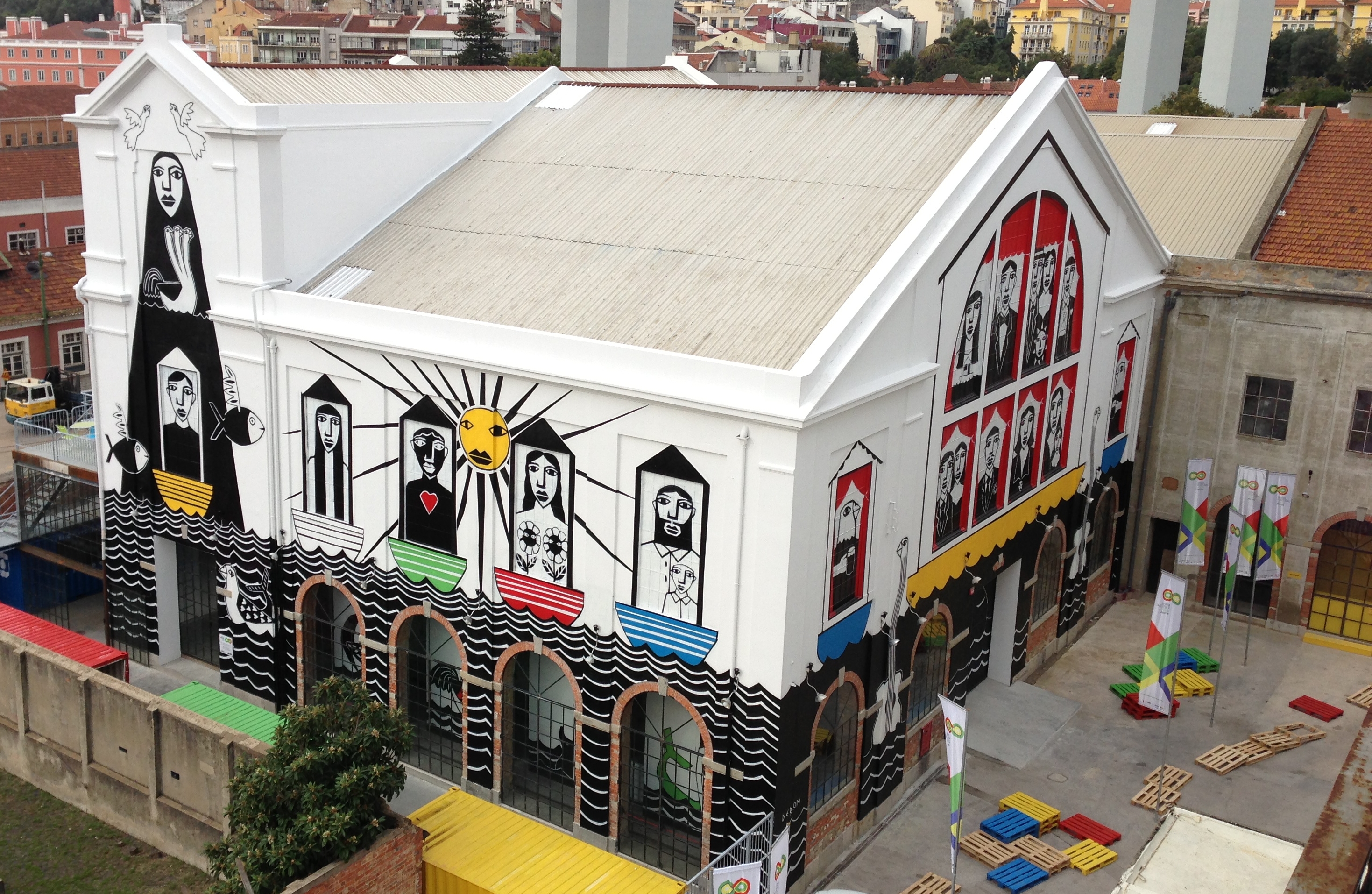
To the east of the city in Xabregas and Braço de Prata, the landscape is more industrial but here, too, you’ll find studios, galleries and art venues. Fabrica Braço de Prata is typical. Formerly an abandoned factory, it was taken over as an artistic squat before being legalised some three years ago. Today it’s one of the city’s hippest music and art venues.
It’s very possible to find an affordable apartment in Lisbon. According to Hughes, Lisbon prices are still ‘extremely low’. To buy here costs around €2,000/metre compared to London’s €25,000/metre averages and Hughes says young buyers are favouring central Lisbon districts like Chiado, Alfama and Mouraria.
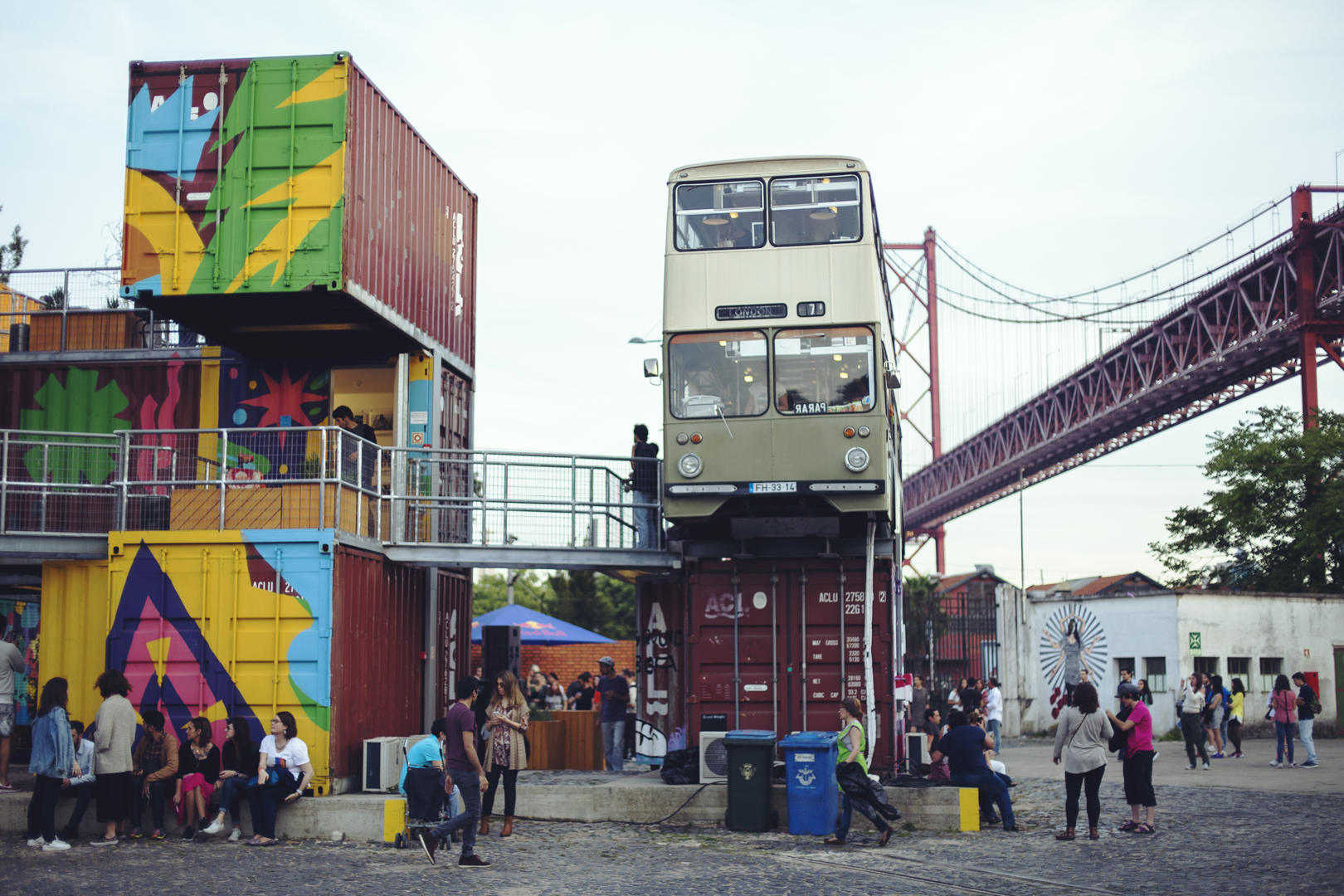
Rental prices are also affordable. In Xabregas and Braço de Prata you can pay as little as €150 per month for a two bed apartment. In the centre of Lisbon and Alcántara a large room in a shared apartment will cost around €250 to €300 and a one bed apartment from €350 upwards.
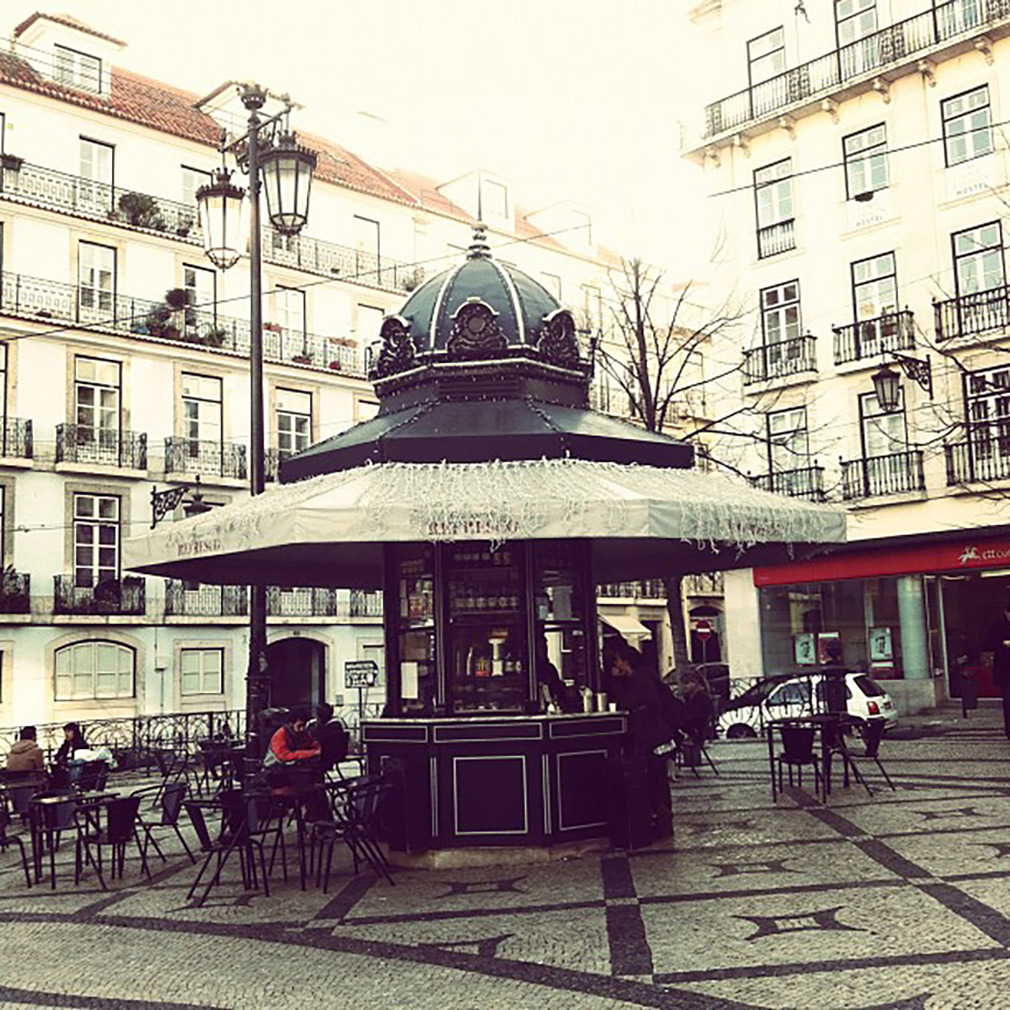
There’s more to life than work and in Lisbon it’s affordable to have fun, too. An espresso is 65 cents, you can buy a small beer for €1 and spend less than €5 on a steak and chips lunch. Day and evening, the bars, restaurants and cafes across the city are buzzing and however you look at it, Berlin, it seems, has some serious competition for the title of Europe’s coolest city.























